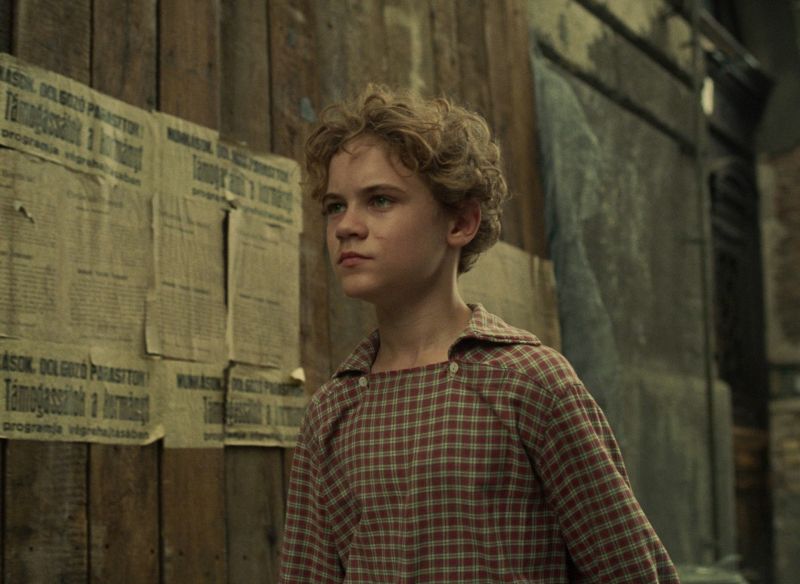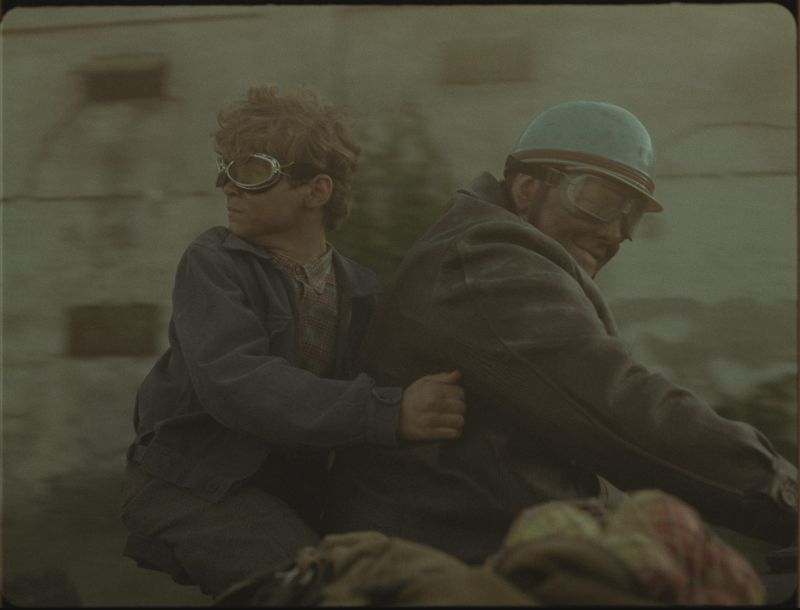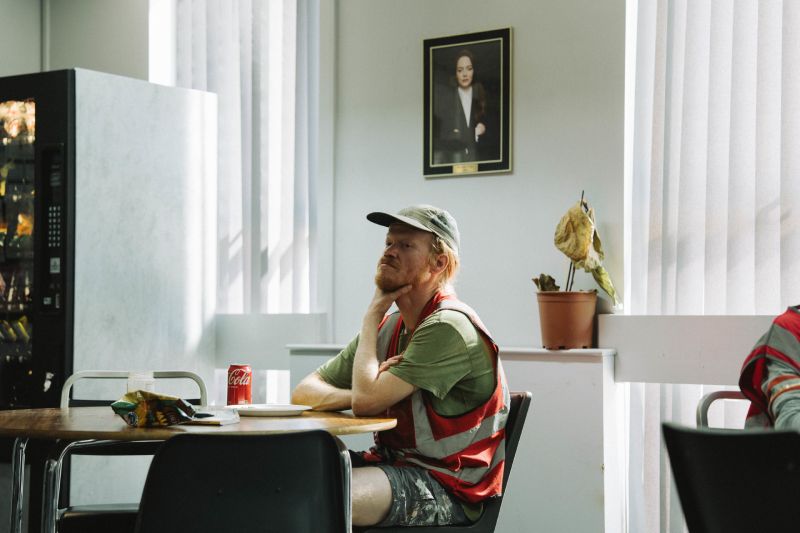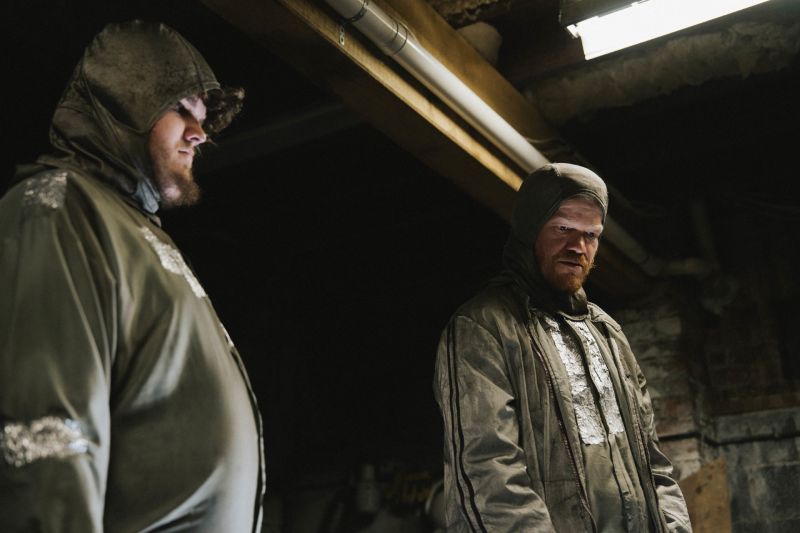It is common for the Mostra to venture into territory where historical memory and personal fractures become cinematic material. It is therefore not surprising that it is László Nemes who offers one of the most intense and devastating approaches. With Orphan, the Hungarian director returns to territory that is both intimate and universal: the wounded memory of 20th-century Europe. Set in Budapest in 1957, shortly after the uprising against the communist regime, the film revolves around the perspective of Andor, a twelve-year-old Jewish boy who has grown up under the idealized myth of a dead father. The appearance of a man who claims to be his father suddenly destroys that construct, forcing the viewer to witness the fracture of a teenager’s identity forged on absence.

The young actor Bojtorján Barabás in Orphan.
The story is based on the director’s own biography: his father’s childhood serves as the starting point, although the script —written together with Clara Royer— expands the story into a broader fresco, where the intimate is mixed with historical oppression and the rubble of the postwar period. The result is a coming-of-age story marked by trauma and permeated by the impossibility of reconciling with the father figure. Nemes reaffirms his loyalty to celluloid here, convinced that only the texture of film can convey the density and discipline he seeks.

Orphan (László Nemes, 2025).
With Mátyás Erdély‘s photography —where warm tones paradoxically provide a backdrop of constant coldness and anguish— each frame takes on a pictorial gravity: the gloom and silence weigh as heavily as the gestures, and the faces become surfaces where recent history continues to leave scars on the young Bojtorján Barabás, who carries the film with a presence that is both fragile and forceful. His face concentrates the vulnerability of someone who discovers that everything he believed to be true was a fiction, and that the truth only opens up a more painful void. Orphan thus settles into this devastated territory, offering neither relief nor escape: Andor’s adolescence is marked by a revelation that does not illuminate, but rather plunges him further into the shadow of an impossible fatherhood.

Jesse Plemons in Bugonia. © Atsushi Nishijima/Focus Features © 2025 All Rights Reserved.
In Bugonia, the third work seen at the festival, Yorgos Lanthimos once again confirms his ability to bring the unusual to the heart of our contemporary experience. What begins as an eccentric tale —two young men kidnap the director of a large pharmaceutical company, convinced that she is an alien— soon reveals itself to be a parable about paranoia, power, and the fragility of our certainties.
Will Tracy‘s script (Succession) avoids heavy-handedness and plays with ambiguity. Michelle’s confinement, played by Emma Stone, is not just an extreme situation: it is a distorting mirror in which the obsessions of Teddy and Don, who believe that women are aliens, are projected. Jesse Plemons brings to life a character dominated by anger and resentment, but at the same time pierced by a painful humanity, while Aidan Delbis, in his debut, brings freshness and vulnerability, embodying that moral compass that hesitates between loyalty and compassion. Opposite them, Stone delivers a hypnotic performance: behind the mask of the ruthless executive, she reveals nuances that challenge any initial perceptions.

Jesse Plemons in Bugonia © Atsushi Nishijima/Focus Features © 2025 All Rights Reserved.
With these magnificent actors, the Greek director transforms the basement where much of the film takes place into a veritable emotional laboratory, to which the VistaVision format also lends an almost pictorial quality, where the characters seem like figures trapped in a mural of existential tensions. A rigorous and disturbing aesthetic that oscillates throughout the film between the grotesque and the tragic, creating an atmosphere in which the comic and the sinister coexist without clear boundaries.

Jesse Plemons and Aodan Delbis in Bugonia. © Atsushi Nishijima/Focus Features © 2025 All Rights Reserved.
The score by Jerskin Fendrix (Poor Things) contributes decisively to this atmosphere, sustaining an emotional rollercoaster ride where intense bursts of sound alternate with abrupt silences that open up real chasms in the narrative. As is always the case with Lanthimos, the music does not accompany, but rather engages in dialogue: the orchestral passages release the contained violence, and the silences force the viewer to share in the characters’ agonizing wait. Thanks to this meticulous work on every creative aspect, Bugonia stands out as a fierce and surprisingly extravagant work. Beyond its premise, what lingers is the way the director draws us into a territory of uncertainty, where laughter freezes into shudders and reality appears as fragile as the beliefs we try to hold on to.







No one has posted any comments yet. Be the first person!